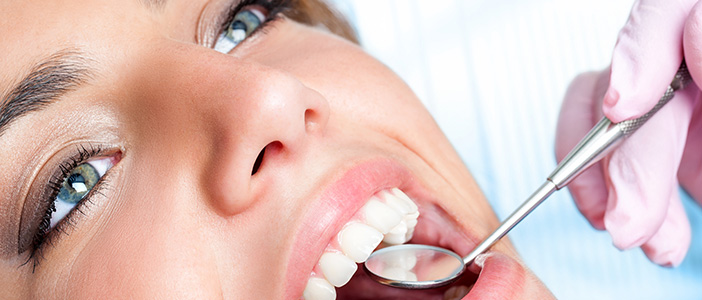Dental Pulp Diseases: The Basics
Poor dental hygiene is the main reason for tooth decay, tooth pain, and other oral health conditions. If you don’t maintain good oral health habits, including brushing and flossing regularly, plaque can develop and lead to cavities. Left untreated, a cavity can eventually affect the soft center (or pulp) of your tooth, which contains sensitive nerves and delicate blood vessels. And if pulp diseases aren’t properly managed, you can lose your teeth.
Symptoms of Pulp Diseases
Depending on the type of pulp disease, symptoms may vary in intensity and can include:
- Pain in a tooth or teeth when you eat something very sweet, hot, or cold
- Sudden, intense pain in the mouth
- Infection in the mouth
Types of Pulp Diseases
There are several different pulp diseases, including:
- Reversible pulpitis, or mild inflammation of the pulp. Symptoms typically include pain upon eating or drinking something very sweet, hot, or cold. Without treatment, the inflammation can progress to a dental abscess, a collection of bacteria and pus. Good oral health habits can help offset reversible pulpitis, but in many cases, a filling is eventually needed. Pulpitis can also occur if you crack or break a tooth.
- Irreversible pulpitis, or severe inflammation of the pulp that can’t be cured. Symptoms include sudden intense pain. Left untreated, it can result in a widespread gum and connective tissue infection. Irreversible pulpitis is generally treated with a root canal procedure. If that doesn’t work, your dentist may have to remove the tooth.
- Dental pulp calcification (also known as dental pulp stones). This is a condition in which hardening, or calcification, of pulp tissue results in hypersensitivity and extreme pain because the dental nerves become compressed. A root canal is usually necessary to clear away hardened tissue.
- Dental pulp exposure. This condition comes on when damage to the external covering of a tooth, such as a cavity or crack in the tooth, exposes the normally protected pulp to bacteria and irritating food particles. Pain is the most frequent symptom and without proper dental care, a mild infection can progress into a serious abscess. Depending on the degree of pulp exposure, a filling, root-canal procedure, or even tooth extraction may be required.
Pulp Diseases Treatment: Root Canal Therapy
If damaged pulp in your tooth isn’t taken out, a severe infection can spread to surrounding tissue, including your jaw bone. A root canal procedure to remove the pulp tissue is usually performed over several visits by a regular dentist or a pulp specialist, called an endodontist. The root canal therapy may spare you from having to get the infected tooth removed.
Here’s what you can expect from root canal therapy:
- First visit. The diseased pulp is removed and the empty space, the root canal, is cleaned out and enlarged. Special medications may be placed in the canal to disinfect the area. A temporary filling may be placed as well, or your dentist may choose to leave the canal open and let the tooth drain for a few days. An oral antibiotic may also be recommended to treat infection in the tissues surrounding your tooth.
- Second visit. The temporary filling is removed and a permanent filling is placed.
- Final visit. A crown is placed over the tooth to reinforce the tooth and make it stronger.
Some pulp diseases may be caused by an injury that broke a tooth. But many other pulp diseases are simply caused by poor oral health habits. If you brush and floss regularly and seek out regular dental care, you are less likely to develop pulp diseases.
Looking for an orthodontist in Beaverton, Oregon? Biermann Orthodontics is a cutting-edge orthodontic practice that serves Beaverton and Molalla, OR, and focuses on providing world-class customer service and efficient treatment. We strive to create stunning smiles in the shortest amount of time without ever sacrificing quality.
Visit our Locations page to find a clinic near you, or schedule an initial consultation.
Biermann Orthodontics
503-690-0722
17885 NW Evergreen Parkway, Suite 200
Beaverton, OR 97006



